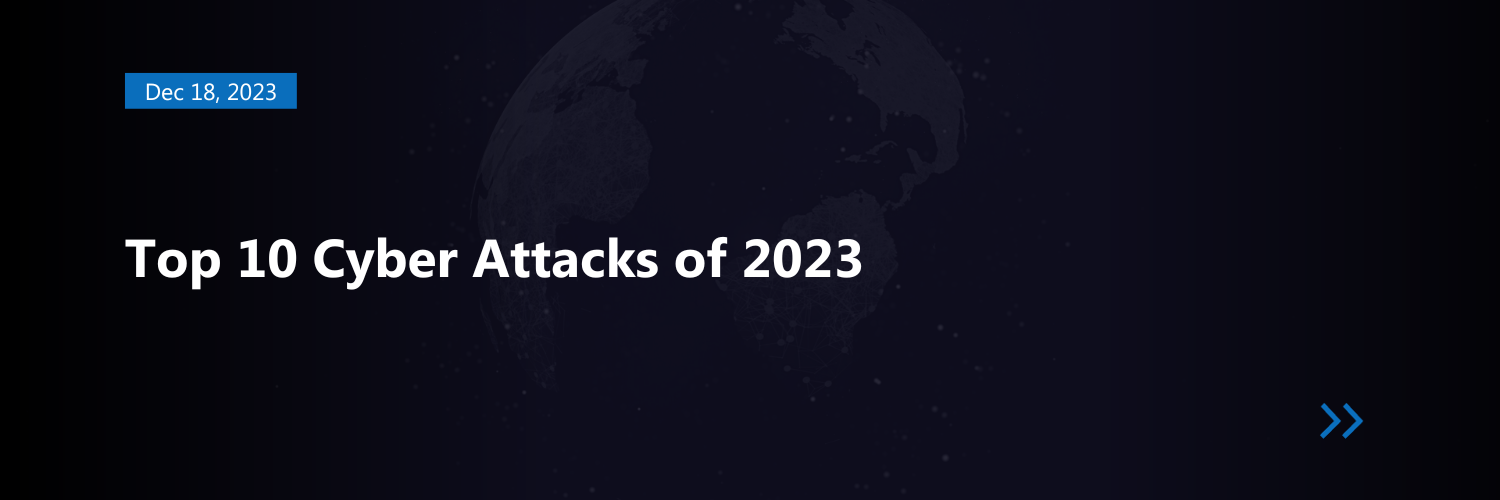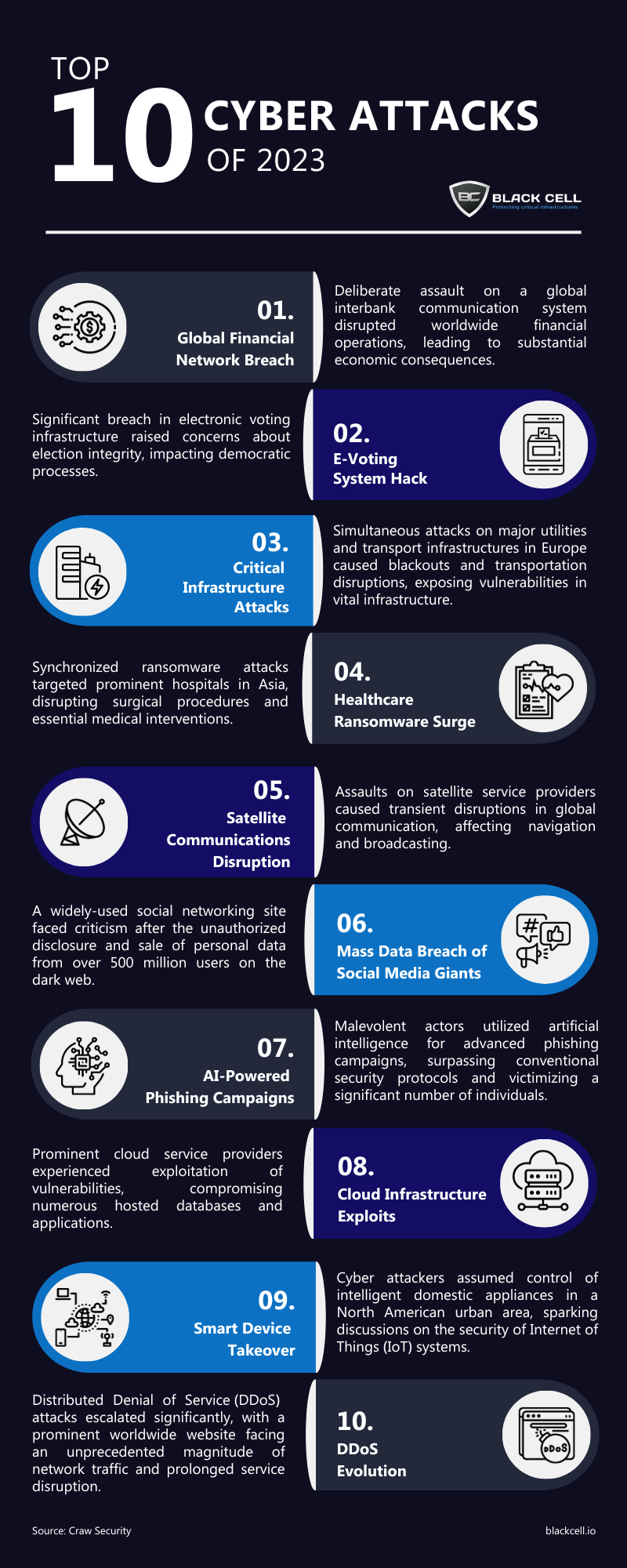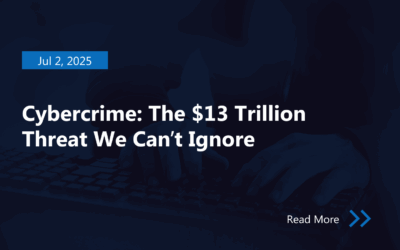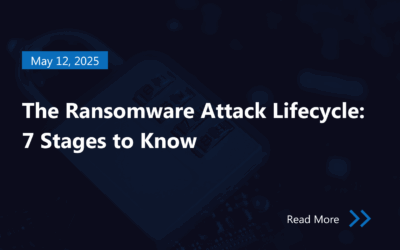The year 2023 witnessed a surge in global cyber threats, reflecting the escalating audacity and sophistication of cyber assailants amid growing digital reliance. This report outlines the ten most significant cyber attacks of the year, underscoring their widespread impact on various aspects of human affairs.
- Global Financial Network Breach Deliberate assault on a global interbank communication system disrupted worldwide financial operations, leading to substantial economic consequences.
- E-Voting System Hack Significant breach in electronic voting infrastructure raised concerns about election integrity, impacting democratic processes.
- Critical Infrastructure Attacks Simultaneous attacks on major utilities and transport infrastructures in Europe caused blackouts and transportation disruptions, exposing vulnerabilities in vital infrastructure.
- Healthcare Ransomware Surge Synchronized ransomware attacks targeted prominent hospitals in Asia, disrupting surgical procedures and essential medical interventions.
- Satellite Communications Disruption Assaults on satellite service providers caused transient disruptions in global communication, affecting navigation and broadcasting.
- Mass Data Breach of Social Media Giants A widely-used social networking site faced criticism after the unauthorized disclosure and sale of personal data from over 500 million users on the dark web.
- AI-Powered Phishing Campaigns Malevolent actors utilized artificial intelligence for advanced phishing campaigns, surpassing conventional security protocols and victimizing a significant number of individuals.
- Cloud Infrastructure Exploits Prominent cloud service providers experienced exploitation of vulnerabilities, compromising numerous hosted databases and applications.
- Smart Device Takeover Cyber attackers assumed control of intelligent domestic appliances in a North American urban area, sparking discussions on the security of Internet of Things (IoT) systems.
- DDoS Evolution Distributed Denial of Service (DDoS) attacks escalated significantly, with a prominent worldwide website facing an unprecedented magnitude of network traffic and prolonged service disruption.
Author

Péter Szöllősi
OFFENSIVE SECURITY MANAGER
Peter has been the Head of Offensive Security at Black Cell for five years, where he manages the pentester team responsible for providing high-quality ethical hacking services to clients to enhance their security posture. He also contributes to the maintenance and improvement of Black Cell’s security posture with internal and external audits.
Related Posts
Cybercrime: The $13 Trillion Threat We Can’t Ignore
If cybercrime were a country, it would rank as the third largest economy in the world. That...
The Ransomware Attack Lifecycle: 7 Stages to Know
Ransomware attacks have become one of the most pervasive and damaging threats facing organizations...





